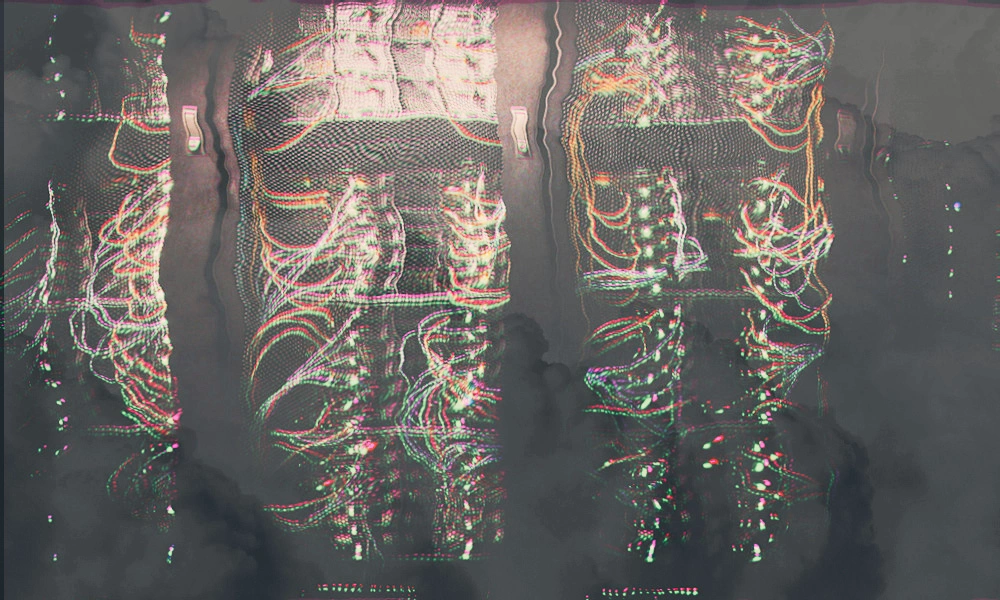
Permacomputing
- • 92%tailscale.com The New Internet
We don’t talk a lot in public about the big vision for Tailscale, why we’re really here. Usually I prefer to focus on what exists right now, and what we’re going to do in the next few months. But let’s look at the biggest of big pictures for a change.
Although I don't know that tailscale is necessarily a good example of permacomputing, this article touches on some interesting ideas about the nature of tech centralisation.
- • 93%noamzeise.com A Mini Monitor for a Pi
This post outlines how I used a small 2 inch display as a monitor for my pi. Where it can display tty terminals and X desktops and applications as if it was a normal screen connected over hdmi. My overall goal is to have a sort of handheld “console” that I can connect a keyboard to and use as a norm...

- • 92%www.anildash.com “Wherever you get your podcasts” is a radical statement. - Anil Dash
A blog about making culture. Since 1999.

- ossforclimate.sustainoss.org OSS for Climate with hosts Richard Littauer and Tobias Augspurger
Hosts Richard and Tobias talk about this new podcast, why open source technology is important for climate change, and what they hope to talk about with future guests!

Seems relevant to this community (albeit I haven't listened to the podcast yet).
cross-posted from: https://lemmy.ml/post/15928804
> We are excited to announce the launch of a new podcast showcasing the transformative power of “Open Source for Climate” and the people and stories behind it. The open source movement is the key to bringing trusted knowledge, technology and collective action.
Post-listen edit: a bit short and underwhelming. Then again, it seems to be more of an intro/announcement than a first "proper" episode. Hopefully the next one will be more fleshed out.
- • 100%berthub.eu Cyber Security: A Pre-War Reality Check - Bert Hubert's writings
This is a lightly edited transcript of my presentation today at the ACCSS/NCSC/Surf seminar ‘Cyber Security and Society’. I want to thank the organizers for inviting me to their conference & giving me a great opportunity to talk about something I worry about a lot. Here are the original slides with ...

cross-posted from: https://lemmy.ml/post/15662912
> https://fosstodon.org/@bert_hubert/112444298499426055
Hi all, I'm really looking for some help. I need to create a reliable system of backing up and data storage. I'm not tech-savvy (will work on that when it's a priority in my life, which it definitely can't be right now) and I'm asking this community because it's forward-thinking and aligns with my values. There are things I have right now, on paper and digitally, that I want to be able to retrieve at least a decade from now (and we'll check in on how the situation changes and what's worth keeping or printing out etc then). Most of the stuff bouncing about in my brain is the conventional advice:
- The age-old "at least three places"
- Don't store what I don't strictly need
- Accessible & simple: the less I have to fiddle, the more sustainable it is (kind of seems to conflict with 1)
- Privacy-first, don't trust clouds, etc (kind of sems to conflict with 1, too!)
I'm not sure (a) if there are any other principles to keep in mind while designing a system that works for me or (b) how this might translate into practical advice about hardware or software solutions. If anything has or hasn't worked for you personally, please share. My daily driver is a LineageOS tablet and it's not clear to me how to best keep its data safe.
- • 100%web.archive.org The 100 Year Computer
We look back at older computers with rose tinted spectacles, but can we look forward with them? What might a computer with a 100 year lifespan look like, and how do we build it?

- wimvanderbauwhede.codeberg.page Frugal computing • Wim Vanderbauwhede
On the need for low-carbon and sustainable computing and the path towards zero-carbon computing.
- www.noemamag.com We Need To Rewild The Internet | NOEMA
The internet has become an extractive and fragile monoculture. But we can revitalize it using lessons learned by ecologists.


YouTube Video
Click to view this content.
Interesting look into Dune and the Luddites, and how technology can take two forms. Apropos permacomputing I think.
cross-posted from: https://lemm.ee/post/28517038
> Web browsers were very limited compared to today's offerings but still very extensive when compared to other applications. Now, browsers on desktop are at a point where they're equivalent to an OS in scope. > > This frustrates me as it's led to stagnation, where very few companies can hold their position. Firefox can only keep up due to preexisting groundwork and the large amount of funding from Google. Chrome had billions thrown at it to quickly enter the market. > > The thing that kills it the most for me is there is no way to fix the massive amount of effort needed for a web browser. It's extensive because it has to deal with thousands of situations: image rendering, video rendering, markup language support (HTML), CSS support, JavaScript support, HTML5 support, security features, tabbed browsing, bookmarking and history, search engine integration, cross-platform compatibility, performance optimisation, developer tools, accessibility features, privacy controls, codec support, to name a few. > > Now, for my unpopular opinion: stripping back a general-purpose browser to its core, forcing web redesign, and modularising the browser. Rather than watching videos in the browser, an instance of VLC would be started where the video will be streamed. Instead of an integrated password manager and bookmarks, we have something akin to KeepassXC with better integration. Markup documents and articles automatically open in word processing applications. I know this idea seems wholly impossible now, but it often crosses my mind.

YouTube Video
Click to view this content.
I thought this video was rather interesting, because at 12:27, the presenter crunches the numbers to find out how many years it would take for a new computer purchase to be more environmentally friendly (in regards to total CO2 expended) compared to using a less efficient used model.
Depending on the specific use case, it could take as little as 3 years to breakeven in terms of CO2 if both systems were at max power draw forever, and as long as 30 if the systems are mostly at idle.

!Image: actuator arm docked in landing tray
!Image: mess of destroyed read/write heads
After a drop, my hard drive was making an intermittent beeping noise and not being recognized by my computer.
I decided to take it apart and found that the actuator arm was stuck on top of the platter when it should be safely docked at the orange landing tray.
I carefully rotated the platter while pulling on the actuator arm with tweezers and unstuck it, bringing it back to the landing tray.
After reassembly, I tested it out again but this time, it made a loud beep, some concerning mechanical noises, then... nothing.
I took it apart yet again and inspected the read/write heads. Well, the picture speaks for itself. They were a mangled mess.
Lesson learned: inspect the read/write heads first before attempting any kind of recovery. Fortunately, this didn't have any important info on it (hence not being backed up!). However, I'd find someone who is better at data recovery than I am to help if I couldn't afford to lose the data. You only get one shot with data recovery!
- • 100%cheapskatesguide.org Gopherspace in the Year 2020
The point of this article is to show readers how to get into gopherspace and have a look around.

- • 100%thereader.mitpress.mit.edu The Staggering Ecological Impacts of Computation and the Cloud
Anthropologist Steven Gonzalez Monserrate draws on five years of research and ethnographic fieldwork in server farms to illustrate some of the diverse environmental impacts of data storage.


Don't use Firefox, use Lynx.
Better yet, boycott http etc entirely.
Gopher or die.
Why are you still using a backlit display? Pipe your terminal into a passive character LCD and go to bed when the sun goes down: https://www.youtube.com/watch?v=hsOaahWFfug
Alt-ASCIIart image for those already on a 20x4 display (modified to fit in a 20x4 display):
text ╔══════════════════╗ ║Debian GNU/Linux ║ ║ttyACM0 Login: █ ║ ╚══════════════════╝This is your life now.
Modern computing has revealed itself to be mostly unreasonable.
Go outside; potatoes need harvesting, the birds are eating your tomatoes, and the chickens haven't been fed yet.
- • 100%www.theregister.com The ever-growing problem of ever-growing codebases
The speedier computing cake is a lie... so we got software bloat instead

- https:// blog.netbsd.org /tnf/entry/netbsd_10_0_rc4_available
In the most recent blog post on NetBSD, they said:
> And as an (unexpected) bonus support for the Nintendo Wii has been added to the evbppc port.
Looks like they have instructions on how to run it in the mailinglist https://mail-index.netbsd.org/port-powerpc/2024/01/27/msg003636.html and a video of it as well https://www.youtube.com/watch?v=n-MShCcFm_w.
It's exciting that the WII can potentially be used for general computing tasks.
Short reminder:
The human genome, with all its magic, is about 3,117,275,501 base pairs long. Source: Wikipedia
If you would encode that data digitally, and store it on a SSD drive, it would take up < 1 GB.
So, if we can do so much magic with 1 GB, that should be an inspiration to all software to do more, with less space.
Thank you for coming to my talk.
Just the other day I read an article about how the average size and weight of cars have increased significantly in the past 60 years, both in Germany and the US.
I have a screenshot (in german):
I wonder whether there is a common reason, for why both software and cars seem to undergo "bloating" right now.
Maybe, it is because we live in a time where we don't appreciate making efficient use of resources anymore.
But maybe somebody has other ideas?
So what's it got to do with this community?
I wonder, whether, if we find an efficient solution to the obesity of cars, maybe that would lead to an efficient solution against software bloat as well?
The abundance of digital storage and processing power has caused an explosion in wastefulness, which shows in things like ridiculous hardware requirements for computing even the most trivial tasks. Permacomputing is about using computation only when it has a strengthening effect on ecosystems.

Hello! Can someone shed some light about the fact that there's no "LowTech" definition on the Permacomputing wiki ?
Looking for perspectives about the above. On my meanderings around the web I've found cybersecurity is all the rage now, cybersecurity experts are desperately needed. Looks a bit like a protection scheme to me - first have everyone save their data in the cloud and buy a smart fridge, then flood everything with ethical hacking courses and cybersecurity certifications.
Reminds me of my marketing translation days working on copy where you always were supposed to outpace your competitors by using some [insert software here]-as-a-service solution to 'compete in an increasingly fast-paced business environment'. Yay rat race.
On the other hand, as to cybersecurity experts, we will need smart people who can re-stupidify our smart appliances when they go rogue.
What would you consider ethical work within IT? Now and in a brighter future?
- • 100%
I have an ac1900 wifi router that isn't in use and had support dropped by the vendor. My home network is already set up, so I don't have a need for it – otherwise, I'd probably flash OpenWRT on it. Any ideas for what I could use it for?
- www.ctvnews.ca Turning cameras off during Zoom meetings can help the climate, study finds
Turning off the camera during Zoom or video meetings can actually help reduce a person's carbon footprint of the call by 96 per cent, a new environmental study finds.

cross-posted from: https://slrpnk.net/post/4470763
> (link covers a 2021 study by Purdue, Yale, and MIT) > > Some folks think teleworking is favorable to the environment on the basis that they avoid driving to work. IMO that’s quite far-fetched when you consider that a worksite with a capacity of ~1000 workers would consume much less energy than heating and cooling 1000 residential homes. Then you have account for the footprint attributed to heavy internet bandwidth demands. > > Nothing beats cycling to work and working on-site. But if you are working from home, it’s worthwhile to try to attend non-video conferences. A presenter may have no choice in some cases but certainly you need not see everyone’s faces. > > FWiW, these are steps to disable high-bandwidth frills: > > Firefox > > ::: spoiler (disable animations) > * disable animations (non-CSS, non-GIF varieties):
about:config»toolkit.cosmeticAnimations.enabled»true→false> * disabling CSS animations needs these ad-hoc steps > * disabling animated GIFs (useless?):about:config»image.animation_mode» (normal→none) or (normal→once, to just disable the play loops) > Or for refined on-the-fly control install this plugin > ⚠Disabling animated GIFs in Firefox may be useless. I get the impression animated GIFs are still fetched but simply not played automatically, thus bandwidth is still wasted. > ::: > > ::: spoiler (disable still images) >about:config»permissions.default.image»1→2> ::: > > Chrome/Chromium > > * Disabling animations- impossible (bug report from ~14 years ago still unresolved). Hence “stop using Chrome” in the title. > > ::: spoiler (disable GIF animations only) > Install this plugin first which only works sometimes; when it fails try this one. > ::: > > ::: spoiler (disable still images) > 1. Click the Customize and control Google Chrome menu button, which is the on the far-right side of the URL toolbar. > 2. Select Settings on the menu to bring up that tab. > 3. Click Privacy and security on the left side of Google Chrome. > 4. Select Site Settings to view the content options. > 5. Then click Images to bring up the options shown directly below. > 6. Select the Don’t allow sites to show images radio button. > ::: > > I have deliberately spared readers from the source links to the above info because the information is buried in enshitified webpages with shenanigans like cookie popups that have no reject all option. Looks like this post is a bit enshitified itself since the details/summary HTML tags are broken here (they tend to be accepted on other Lemmy instances). If anyone knows the fix plz let me know. (reported) - • 100%labs.ripe.net Computing Within Limits 2023
My goal in this article is to inform technical communities of the research presented at the LIMITS conference, and to invite those who work at the intersection of sustainable technology and climate justice to join RIPE and the IETF.

I used to really like youtube for all the interesting content - especially tutorial videos of all kind. Lately I have become very tired of watching moving images for content that could be delivered in text form - where I can choose to read and take it in at my own pace, in silence.
I agree that not all content can be delivered in this way, videos are incredibly helpful with a lot of stuff, but I wish more stuff could be (also) readable instead of watchable, or even listenable. Is in part an autism/accessibility thing, but also plays into my thoughts about the appropriateness of resource use for information recording/presentation/transfer from an Solarpunk computing perspective.
What do you think?

Dual booting Linux with a small windows partition this time so that I have more space for any programs I can't get going with Wine.
As a bonus, I discovered that my RAM and battery are replaceable too.
These two groups exist:
- !permacomputing@lemmy.sdf.org
- !permacomputing@slrpnk.net
Both are small but it looks like slrpnk.net has more traction. IMO both might want to consider mentioning the other in the side-bar so folks know to cross-post.
One or two AA or AAA batteries can power a 1980s pager for a whole year without recharging. This is because most pagers of that time period are one-way. Since it only listens, it avoids the energy cost of constantly transmitting to all towers in range. So it’s even better than a feature phone (dumb phone). The beneficial side-effect: you’re untrackable apart from being in the service area.
It’s not a good state of affairs in the US though. All but 2 pager service providers have gone out of business. It’s a duopoly and last time I checked you can only get annual contracts for a price that’s higher than prepaid mobile service. You also can no longer buy new pagers because no one makes them (apart from POCSAG hobbyist varieties which then require you to build your own transmitter). This means you’re limited to whatever still exists in the 2nd hand market for hardware.
So it sucks in the US. Is it better anywhere else? In principle pagers are still important for first responders because they’re more reliable than SMS, so they should really still exist everywhere at least to the extent that competence prevails.
Now that the web is rich in garbage I try to think of how the UX can be made tolerable again. Consider this scenario:
Bob sees an article of interest and decides to share it. I have no idea why Bob’s experience was decent enough that he feels the article is worthy of sharing, but I’m getting tor-hostility, CAPTCHAs, popups, dysfunction that requires JavaScript perms, etc. In short, Bob’s link goes to a shit hole.
So how can we fix this?
What if Bob copies the full text of the article and creates an archive of sorts in the fediverse? That solves the enshitification problem but it risks harassment from copyright police. Or does it not? The fair use doctrine specifically permits a work to be quoted for the purpose of commentary. It’s also easily justified because the web has become so exclusive (e.g. Tor blocking) that a case can be made for including a copy of the article along with Bob’s commentary. Because what happens now? Alice the Tor user gets blocked from the page and can only read people’s comments which have no context because the web is broken. Bob copying the original text enables Alice to appreciate Bob’s work (his commentary).
I also wonder if bilingual people can go a step further in mitigating copyright harassment. Suppose Juan reads the English article, machine translates it into Spanish, then corrects the flaws because he’s fluent in Spanish, and then posts the Spanish version. Do copyrights survive translation? If Juan comments in Spanish, then surely the Spanish translation is critical to non-English speakers understanding Juan’s post.
I think this idea would benefit the permacomputing movement because avoiding web enshitification is a way to access content with less resources. The original poster may have to run a shit ton of heavy JavaScript to reach the text, but then everyone attending his thread can function with a simple text client.
#askFedi #lawFedi
